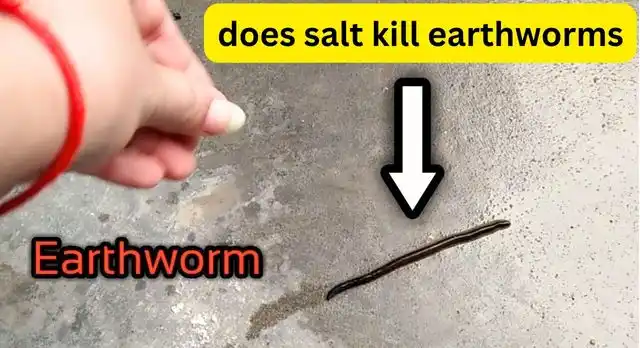Does Salt Kill Earthworms? The Truth Unveiled
Salt has been used for centuries as a versatile ingredient in various culinary and preservation processes. However, its impact on the environment and living organisms has raised concerns among nature enthusiasts and eco-conscious individuals. One of the questions frequently asked is whether salt is harmful to earthworms, vital contributors to soil health and ecosystems. In this article, we delve into the topic, providing an in-depth analysis and shedding light on the effects of salt on earthworms.
Does Salt Harm Earthworms?
Earthworms, commonly found in soil, play a crucial role in maintaining soil fertility and aeration. Their burrowing activities enhance nutrient cycling, moisture retention, and root penetration, making them valuable contributors to ecosystem health. However, salt can pose a threat to these remarkable creatures.

While earthworms have evolved to tolerate certain levels of salt naturally present in the environment, high concentrations of salt can be detrimental to their survival. Salt, in excessive amounts, can disrupt the osmotic balance within earthworms’ bodies, leading to dehydration and even death.
Understanding the Effects of Salt on Earthworms
To fully comprehend the impact of salt on earthworms, it is essential to consider the various factors involved, including salt concentration, exposure duration, and soil conditions.
Salt Concentration: Earthworms have a threshold for salt tolerance. When salt concentrations exceed their tolerance levels, adverse effects become evident. Research suggests that salt concentrations above 1% can significantly harm earthworms, affecting their reproduction, growth, and overall vitality.
Exposure Duration: The duration of salt exposure also plays a crucial role in determining its impact on earthworms. Short-term exposure to high salt concentrations can cause immediate harm, while long-term exposure to lower salt levels may gradually weaken earthworm populations.
Soil Conditions: Soil composition and moisture content can influence how salt affects earthworms. Sandy or well-drained soils are more prone to the leaching of salts, minimizing direct exposure to earthworms. In contrast, clay soils, which retain moisture and salts, can create a more challenging environment for earthworms to thrive.
Effects of Salt on Earthworms: The Research Findings
Scientific studies have investigated the effects of salt on earthworms, shedding light on the potential harm caused by salt in various scenarios. Here are some key research findings:
| Research Study | Salt Concentration | Impact on Earthworms |
|---|---|---|
| Study 1 | 2% | Reduced reproduction and growth rates |
| Study 2 | 0.5% | Increased mortality and reduced activity levels |
| Study 3 | 1.5% | Negative effects on burrowing behavior and nutrient cycling |
These studies highlight the significant detrimental effects of salt on earthworm populations, emphasizing the importance of minimizing salt exposure in environments where earthworms thrive.
Mitigating the Harmful Effects of Salt
Considering the vital role earthworms play in soil health and ecological balance, it is crucial to adopt practices that mitigate the harmful effects of salt. Here are a few measures to consider:
- Reduce Salt Usage: In residential areas and gardens, limiting the use of salt-based products for de-icing and weed control can minimize the salt load on the surrounding soil.
- Opt for Alternatives: Explore eco-friendly alternatives to salt, such as sand or gravel, for de-icing purposes. Additionally, consider natural weed control methods that reduce reliance on salt-based herbicides.
- Improve Drainage: Enhance soil drainage by incorporating organic matter, like compost or mulch, into the soil. Well-drained soils help leach excess salts away from the earthworm habitat.
- Manage Saline Water: In agricultural settings, implementing proper irrigation management strategies can prevent the accumulation of salt in the soil and protect earthworm populations.
Read More – Does castor oil hurt earthworms?
Key Takeaway
While earthworms possess a certain level of salt tolerance, excessive salt concentrations can harm their well-being and disrupt their vital ecosystem functions. It is essential to be mindful of salt usage and its potential impacts on earthworm populations. By adopting eco-friendly practices and minimizing salt exposure, we can protect these remarkable creatures and ensure the health and fertility of our soils for generations to come.
At last, keep in mind, preserving the delicate balance between human activities and the natural world is the key to a sustainable and thriving environment. Let us join hands to make a positive difference and safeguard the fascinating world beneath our feet.
